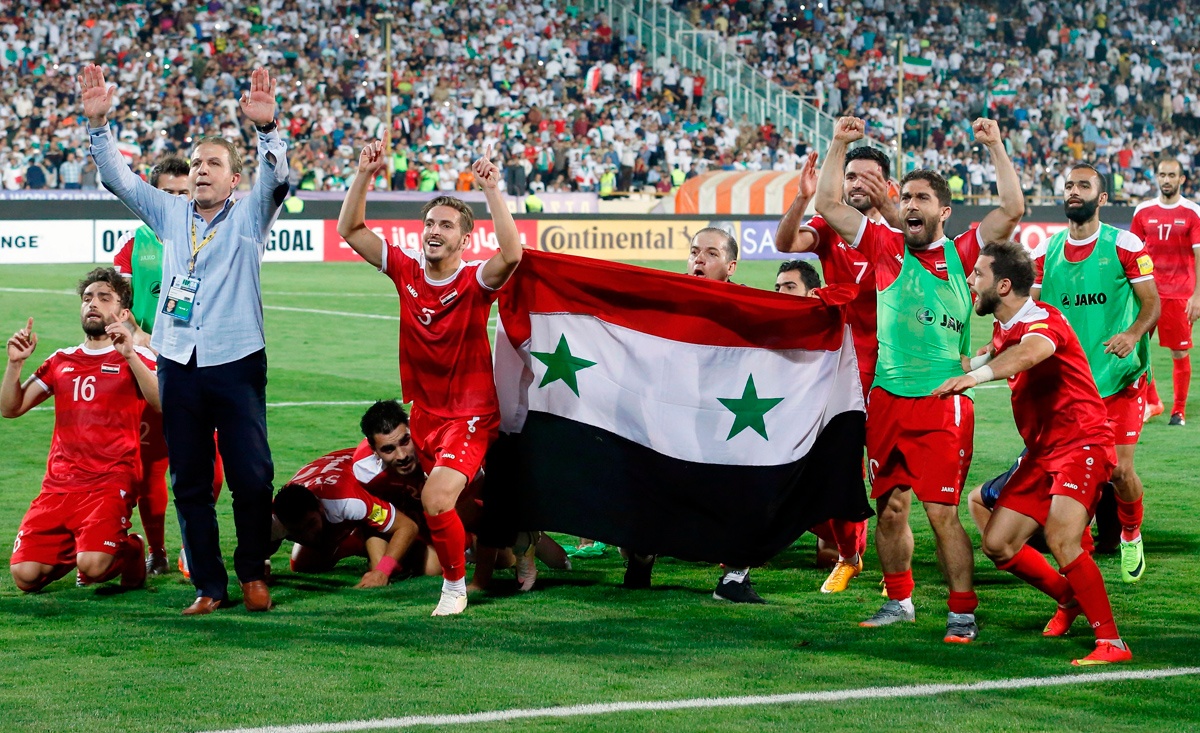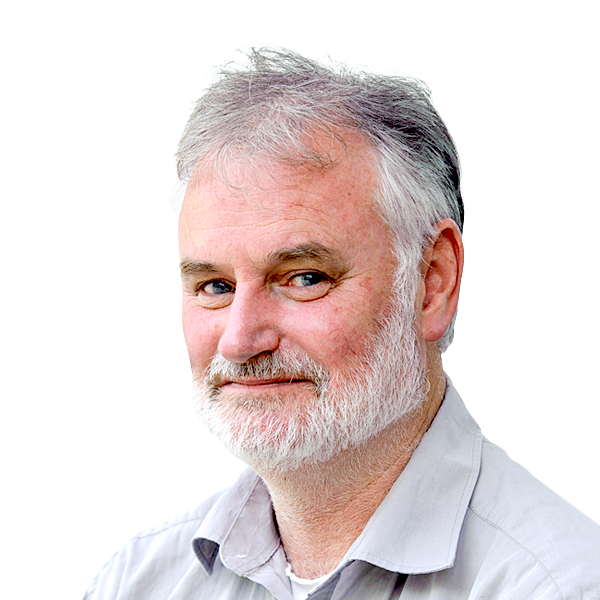
After years of scandal and corruption, football desperately needs good news stories.
And on the surface, war-torn Syria’s run to the 2018 FIFA World Cup play-offs appears like one.
After six years of civil war, the country finally has something to celebrate, having booked their spot in a two-legged play-off against Australia next month in a clash that will decide Asia’s representative in another play-off fixture.
The winner of that will qualify for next year’s World Cup, the biggest sporting event in the world.
Syria have never played at sport’s biggest party, and given the ongoing conflict in the shattered nation, qualifying for Russia would be quite the achievement.
But don’t be sucked in by the headlines.
This is no good story, like the Western Bulldogs, the Cronulla Sharks or the Chicago Cubs.
In fact, we’ve seen so many sporting fairytales in recent years you could be excused for believing there are fairies at the bottom of the scrum and that, one day, the Wallabies might beat the All Blacks.
This simply isn’t one, though, even if the official spin from the Ba’athist government of Basher al-Assad and the Syrian Football Association is that the team’s success has united the nation.
Syria remains a divided country.
“There has been some celebration but those who oppose the government have been angry at the team,” Dr Fiona Hill, Victorian chair and board member of the Australia-Arab Chamber of Commerce and Industry (AACCI) told The New Daily.
“In the past, the team have worn shirts with the face of the president on them.
“Opponents of the government say that Syria competing and doing well normalises the situation and makes it seem like everything is fine,” Dr Hill said.
Backed by the Russians, Assad colludes with ISIS to eradicate Syria’s splintered opposition groups.
And the Syrian team represents those areas of the country which are under Assad’s control.
His regime has been accused of waging repeated chemical attacks on civilians and the mass bombing of Homs, the city that seeded Syria’s Arab Spring revolt in 2011.
Homs is home of Syria’s star player, Firas Al-Khatib.

Al-Khatib is an excellent striker. Photo: Getty
Capped 57 times for his country, Khatib has played for Kuwaiti and Iraqi clubs, and Chinese powerhouse Shanghai Shenhua.
Just five years ago, he withdrew from Syria’s national team in protest against the government’s bombing of Syrian cities.Khatib’s young cousin was killed in an attack on Homs.
All of a sudden, earlier this year, Khatib returned to Homs and his old club, Al-Karamah, signalling his readiness to rejoin the national team.
And he didn’t come back in to play a minor role: he captained Syria against Iran.
Khatib initially said his decision to return was not political but based on family reasons.
When pressed he added: “What happened is very complicated but I can’t talk more about these things … Better for me, better for my country, better for my family, better for everybody if I not talk about that.”
You can draw your own conclusions.
Not all Syrians welcomed Khatib’s return, however.
Nihad Saadeddine told ESPN that Khatib should be “condemned to the garbage bin of history” with those who support the Assad regime.
You see, Saadeddine’s story is very different to Khatib’s.
A refugee, he has coached ‘Free Syria’ teams drawn from refugee populations in Turkey and Germany.
The teams are overtly political. As Saadeddine states, their goal is to “expose the [Assad] regime” and remind the world that “there is a revolution … and free [Syrian] athletes”.
Pressure has been placed on FIFA to ban the Syrian team from the World Cup qualifiers.
They were booted from the 2014 World Cup in the qualifying stage for fielding an ineligible player, but a similar suspension has not occurred on this occasion.

Syria fans hold a picture of Bashar Al-Assad when watching a match. Photo: Getty
That is despite FIFA being presented with a 2015 document titled ‘War Crimes against Syrian Football Players’.
The report alleged political interference by the Assad regime in Syrian football, which if established, constituted a clear breach of FIFA rules.
FIFA did not respond.
Dr Hill said that “a lot of appalling violence and intimidation has been perpetrated by so many different parties in Syria, not only by the Assad-led Government”.
The Syrian FA remains steadfastly behind Assad.
The organisation’s vice-president, Fadi Al Dabbas, is on record at expressing his pride in both the national team and Assad’s achievements.
And his stance raises questions. Is this a team for all Syrians? Or only those who support the regime?
Unfortunately, the civil war has not only split Syria but also its football culture.
As an ESPN investigation found, players who opposed Assad have been tortured, disappeared or had pressures placed on their families.
This is the hidden story of Syrian football.
Despite all of this, they will be far from a pushover for the Australians – even if they are paid substantially less than Ange Postecoglou’s Socceroos.
Syria will be disadvantaged by playing their home match in the two-legged affair in neutral territory, likely to be Malaysia.
The Syrian FA initially sought a deal to play their home games in Macau, but it fell through because of the EU and American economic sanctions against the Assad regime.

Syria play their home matches in neutral territory. Recently, they have played in Malaysia. Photo: Getty
The grubby politics and shady financial deals have been forgotten in this supposed ‘feel good story’.
So too have the gassings, bombings and backroom murders of political opponents by the Assad regime.
This should not detract from the achievement of the Syrian players.
Given what they’ve been through, they deserve to qualify.
Unable to play their home matches in Damascus, they have had to stage home fixtures in Oman and Malaysia.
And while the Australians struggled against a superior Japanese outfit last Thursday, the Syrians thumped Qatar 3-1 in Malacca.
Syria then sealed their spot in the play-offs with a last-minute equaliser against Iran in Tehran that sparked wild celebrations among players and commentators.
Like the Socceroos, Syria finished in third spot in their group, level with Uzbekistan on 13 points, but progressed due to superior goal difference.
The mood in Tehran could not have been more different in Melbourne as the Socceroos limped over the line against Thailand and ex-players Robbie Slater and Mark Bosnich pondered out loud if Postecoglou was the right man for the job.
Australia’s mood was darkened further when Saudi Arabia upset Japan to force the Socceroos into the play-offs.
Syria will prove tough opposition and a draw against Japan, in Japan, earlier this year will give them plenty of confidence.
Everyone loves the underdog and Syria are likely to go into October’s clashes with the football world behind them, even if many in their own country won’t be.
But don’t confuse this story with a heart-warming one. It isn’t, because you can’t separate sport from politics.
If you could, we’d be left with the world’s most beautiful game and a wonderful Syrian fairytale.
